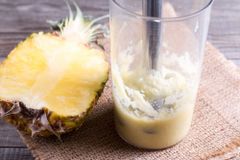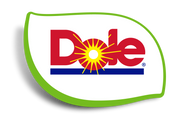3 Reasons to Feed Your Baby Pineapple

Since they’re constantly growing, babies have special needs, especially when it comes to their diet. Typically, babies can begin to eat solid foods around six months of age. Many parents feed their little ones nutritious fruits because they can be pureed with milk, making it easy for tooth-less babies to eat. If you want to feed your child pineapple, wait until they’re one year old since the fruit’s strong citric acids could be harsh on their digestive system.
Why You Should Feed Your Baby Pineapple
1. Supports Immunity
Pineapple has high amounts of vitamin C and copper. These nutrients will support your baby’s immune system as they grow and encounter new experiences. The antioxidants in a pineapple puree will protect your little one from free radicals, which are damaged cells that may cause heart disease and cancer.
2. Assists Development
 This fruit includes iron and folate, which will encourage healthy development. Iron will carry oxygen to your little one’s brain, ensuring proper development, and folate produces DNA and RNA, making it an essential nutrient during periods of rapid growth.
This fruit includes iron and folate, which will encourage healthy development. Iron will carry oxygen to your little one’s brain, ensuring proper development, and folate produces DNA and RNA, making it an essential nutrient during periods of rapid growth.
3. Aids Digestion
The high levels of bromelain found in pineapples will help your baby break down proteins, facilitating digestion. Additionally, this fruit contains fiber, which will maintain healthy function and movement in the digestive tract, protecting your little one from constipation.
If your baby is ready to eat pineapple, buy your fruit from Dole/Tropical Fruits Distributors of Hawaii in Honolulu. Their Royal Hawaiian Tropical Gold Pineapples® are locally grown on the northern side of Oahu in nutrient-rich volcanic soil. If your little one loves this fruit, spend the day at the Dole Plantation where you can walk the old pineapple fields, shop pineapple-themed goods, and sample pineapple soft serve. View their fruit selection online, or call (808) 847-3234 to place an order.
About the Business
Have a question? Ask the experts!
Send your question

